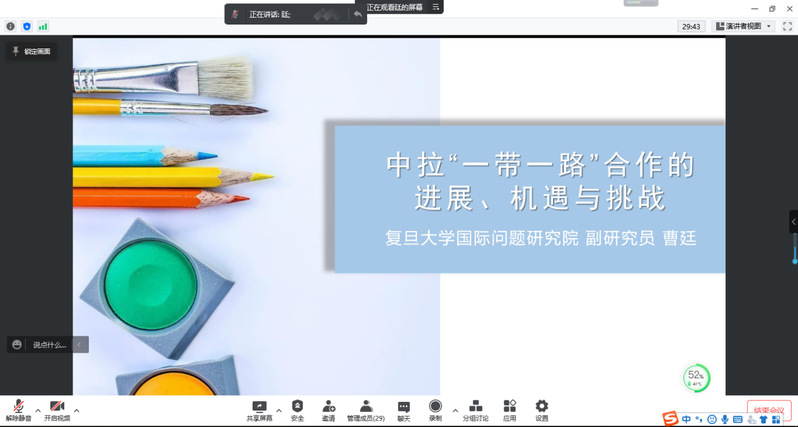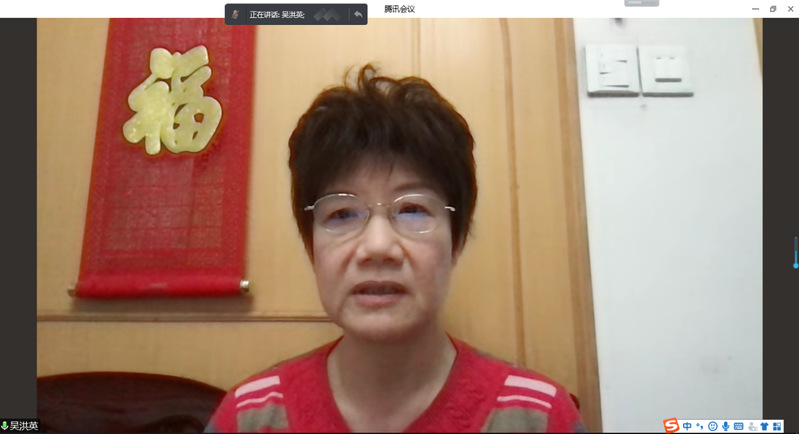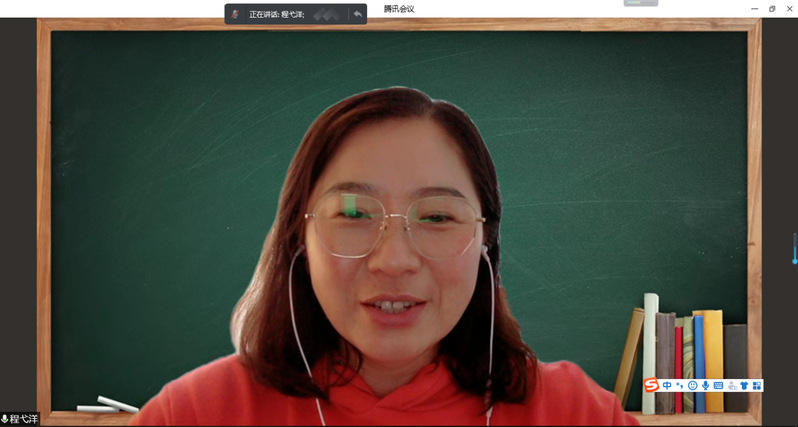On 29 March 2022, the 48th Youth Academic Workshop on International Studies of Fudan University (YAWIS Fudan) was held by the Institute of International Studies of Fudan University (IIS Fudan) via virtual meeting. Associate Professor CAO Ting gave a lecture titled “The Cooperation between China and Latin America under Belt and Road Initiative: Progress, Opportunities and Challenges.” The 48th YAWIS Fudan was moderated by Prof. QI Huaigao, Vice Dean of IIS Fudan, and two discussants are Prof. WU Hongying, Director of Center for BRIC&G20 Studies of CICIR (China Institutes of Contemporary International Studies) and Prof. CHENG Yiyang, Head of Department of Spanish Language and Literature of Fudan University. The 48th YAWIS Fudan brought an audience of faculty and students from more than 20 universities nation wide. (Assoc. Prof. CAO Ting gave a lecture titled “The Cooperation between China and Latin America under Belt and Road Initiative: Progress, Opportunities and Challenges ”) By making an in depth analysis on the evolution and necessity of Belt and Road Initiative (BRI) cooperation, opportunities and challenges faced by between China and Latin America, Prof. Cao made some recommendations for the two parties. She pointed that Latin America is an extending region for Maritime Silk Road. In recent years, the BRI cooperation between China and Latin American countries displays a positive trend: policy coordination has been continuously enhanced; economic and trade cooperation upgraded; physical connectivity promoted; financial cooperation network gradually set up; and people to people exchange further strengthened. Cao believed that enhancing the cooperation between China and Latin America will not only be conducive for the China`s economic development, helping Latin American countries deal with the development difficulties, but also for pushing a stable cooperation between China and Latin America, and jointly coping with the complicated changes of the world situation. At present, the COVID 19 pandemic and factors outside the region are the major challenges for China and Latin American countries. China should push forward the building of the Community with the Shared Future by making full use of the effect of “Five Connectivity” and telling a China Story well to the international community. Prof. WU Hongying commented that BRI is the largest public goods that China provided to the world. It origins from China, but belongs to the world. Its fruit will be shared by the world. Now, more than 140 countries and 30 international organizations have joined in the initiative. At the very beginning, though BRI was neglected by Latin America, these countries have gradually attached importance to the initiative and actively promoted BRI cooperation since 2017 when they witnessed BRI made great contributions to the countries and region. (Prof. WU Hongying, Director of Center for BRIC&G20 Studies of CICIR presents her comments) Prof. CHENG Yiyang pointed that in recent years, political crisis frequently happened in Latin American countries. The countries with the regime change usually adjusted its diplomatic and economic policy, which will impact somewhat the cooperation between China and Latin America. At the same time, it cannot be neglected that the US is a factor disrupting the cooperation between China and Latin America. (Prof. CHENG Yiyang, Head of Department of Spanish Language and Literature of Fudan University) During the Q&A session, the speaker, discussants and audiences exchanged their ideas on China-CELAC forum, Brazil’s presidential election, the impact of B3W to Sino-Latin American cooperation and other issues related to Sino-Latin American relations. CAO Ting joined IIS Fudan as Associate Professor in March 2022. Her current researches touch upon Latin American energy, Latin American Integration, Sino-Latin American Relations and US-Latin American Relations. Link to the Chinese Version: https://iis.fudan.edu.cn/b5/9e/c6840a439710/page.htm


Assoc. Prof. CAO Ting Gives a Lecture on Sino-Latin American Cooperation at the 48th YAWIS Fudan
发布时间:
2022-03-30
访问次数:
62
